Responding to queries by the Senate's Standing Committee on Finance Governor State Bank of Pakistan Yaseen Anwar has stated that the current debt situation could result in a debt trap. He clarified that the inability to generate revenue has led to a primary balance deficit defined as revenue minus non-interest expenditure which may lead to a debt trap.
An SBP official on condition of anonymity told Business Recorder that the primary balance deficit is 2.1 percent indicative of sustained reliance on borrowing by the government for the past two to three years. In this context, it is necessary to point out that in November 2008 the then Finance Minister, Shaukat Tarin, submitted a Letter of Intent (LoI) to the International Monetary Fund (IMF) in which the government expressly agreed to bring borrowing from the SBP to zero. This was achieved by the end of 2009; however in 2010 the situation was reversed for two broad reasons.
First and foremost, the government failed to implement the power and tax reforms with a negative impact on not only national productivity but also on the ability to raise the tax to Gross Domestic Product ratio respectively. This led to the IMF first suspending and later ending its 7.6 billion dollar Stand-By Arrangement (SBA) with two tranche releases remaining. And secondly, subsequent to the cessation of the SBA multilaterals as well as bilaterals suspended their own programme lending with the plea that the government must either get a Letter of Comfort from the IMF or begin to implement the stalled reforms to receive budgetary support. Any failure to do either led to a massive decline in the reliance placed on external sources for budgetary support and thence the Ministry of Finance embarked on a borrowing spree that continues to this day. Thus increasing reliance on domestic borrowing and a disregard for meeting the relevant LoI condition dates from around July/August 2010.
This is not the first time that a SBP Governor or senior officials have voiced their concerns on what they perceive as profound lack of fiscal discipline and the tendency of the Ministry of Finance to spend its way through massive borrowing. In May 2012, the SBP Governor in an interview to a foreign media outlet had stated "I'm in a difficult position. I'm independent but not independent enough to return cheques from the government." While SBP governors normally do not openly voice their criticism of government policy and Yaseen Anwar was reportedly taken to task by the then Finance Minister, Dr Hafeez Sheikh, yet the Governor's warnings were not heeded and the reliance on heavy borrowing by the government continued.
The Ministry of Finance's Additional Secretary Abdul Khaliq however, told the Senate Standing Committee that the government had been able to limit public debt to 60 percent or below the GDP as set in the Fiscal Responsibility and Debt Limitation Act 2005. This contention was made possible because for the last three years the federal budgets have excluded debt consolidation of power and food arrears. To get an idea of the amount involved, it is pertinent to note that in fiscal year 2011-12 subsidy to the power sector alone was in excess of 330 billion rupees from what was budgeted and food subsidy was in excess of around 40 billion rupees.
The SBP Governor, however stated that rupee depreciation was not attributable to repayment to the IMF, which was budgeted and noted that no state bank can protect its currency during a currency war and cited the depreciating yen against the dollar as an example. A central bank has the primary responsibility for not only keeping inflation in check through interest rate adjustment that can mop up excess liquidity, a policy that was in place as indicated in the 2008 LoI, but also ensure the strength of its currency through available open market instruments. The SBP did engage in shoring up the rupee value through releasing dollars into the market but the haemorrhaging to the economy because of sustained fiscal indiscipline was simply too much and sustained to make too much of a difference. One can only hope that corrective measures are put in place on an emergent basis though there appears to be no movement towards that yet. On the contrary, a bailout package to the Pakistan Steel Mills has been approved by the newly-appointed Minister for Finance and it seems as if the country continues on the dangerous road towards heavier than budgeted spending.
BR100
16,405
Increased By
92.5 (0.57%)
BR30
52,938
Increased By
579.1 (1.11%)
KSE100
158,781
Increased By
743.5 (0.47%)
KSE30
48,500
Increased By
249 (0.52%)






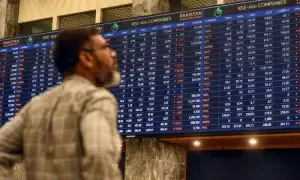
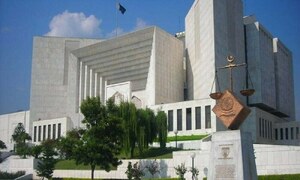





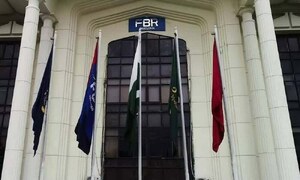



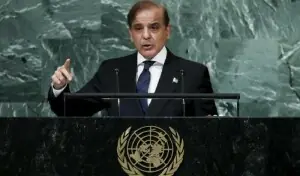


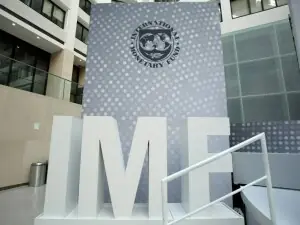
Comments
Comments are closed.